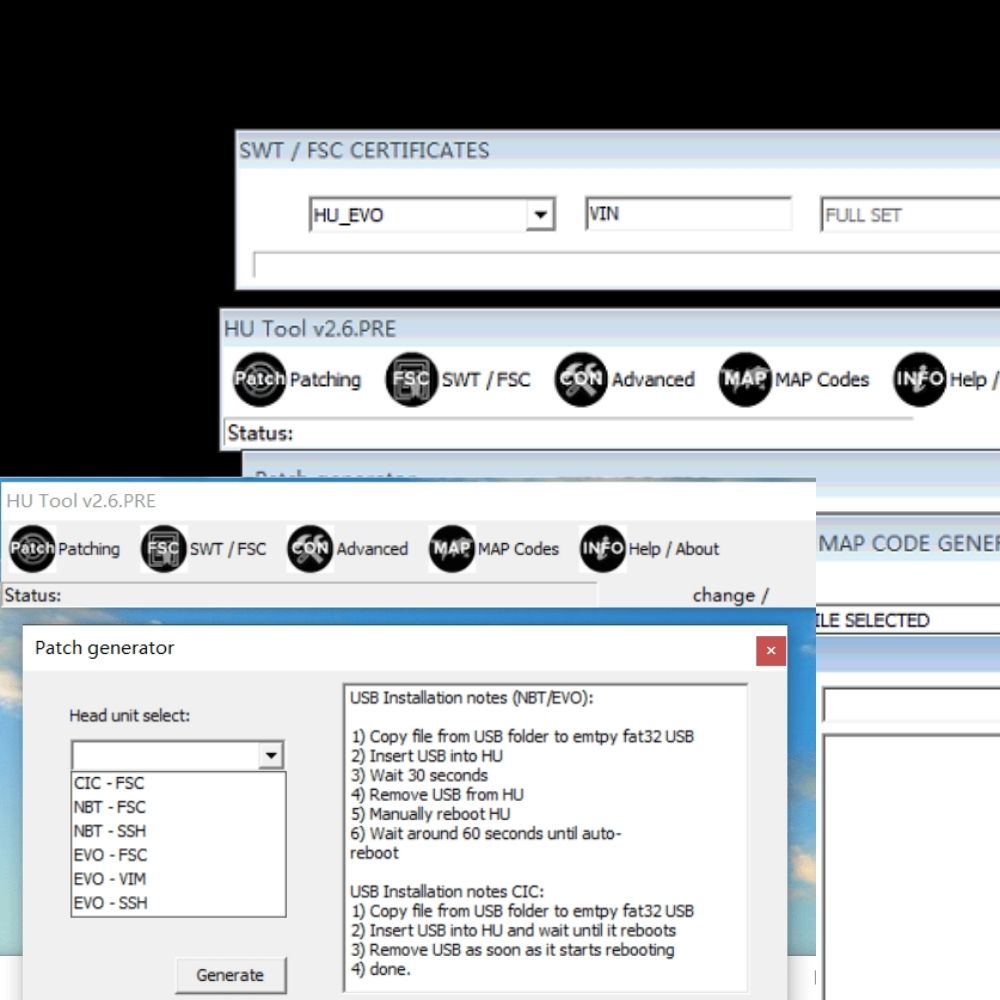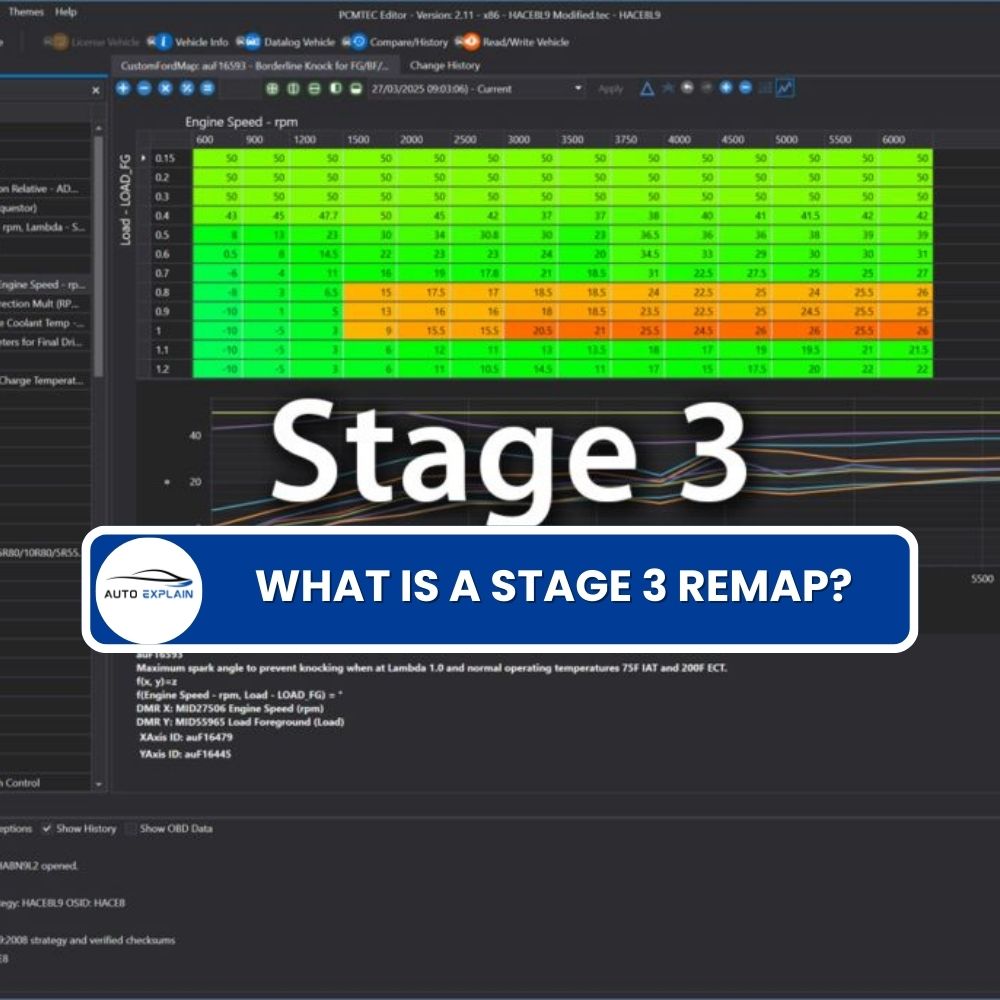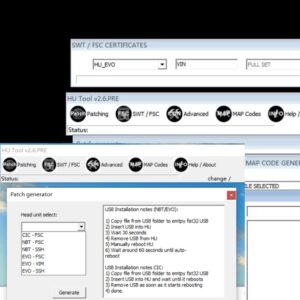
What Does The 2019 BMW 330i Engine Code Mean?
The 2019 BMW 330i engine code reveals important information about the engine’s design and specifications. By understanding the code, technicians can quickly identify the engine type and troubleshoot potential issues effectively, ensuring optimal performance. AutoExplain.com offers remote diagnostic and programming services.
Table of Contents
Toggle1. Understanding BMW Engine Codes
BMW engine codes are alphanumeric designations that provide crucial details about the engine’s design, technology, and specifications. These codes are essential for identifying the correct parts, troubleshooting issues, and performing maintenance. What do the BMW engine codes mean?
BMW engine codes provide detailed information about the engine’s configuration, displacement, and technological features. For instance, a “B48” engine code indicates a member of BMW’s B-series engines, which are known for their modular design and efficient performance. Understanding these codes helps technicians accurately diagnose and repair BMW engines.
1.1 Decoding the 2019 BMW 330i Engine Code
The 2019 BMW 330i is equipped with a B46 engine, part of the BMW B-series family. What does the B46 engine code mean for the 2019 BMW 330i?
The B46 engine code signifies a 2.0L 4-cylinder turbocharged engine with direct injection and Valvetronic technology, which optimizes performance and fuel efficiency. This engine delivers around 255 horsepower and 295 lb-ft of torque, providing a balance of power and efficiency suitable for the 330i model.
1.2 The B-Series Engine Family
BMW’s B-series engines represent a modular design approach, sharing common components and architectures across different engine sizes and configurations. What are the key characteristics of the BMW B-series engine family?
The B-series includes 3-cylinder (B38), 4-cylinder (B48), and 6-cylinder (B58) variants, all featuring direct injection, turbocharging, and Valvetronic. This modularity reduces production costs and simplifies maintenance, ensuring consistent performance and reliability across the BMW lineup.
2. Key Features of the B46 Engine
The B46 engine powering the 2019 BMW 330i incorporates several advanced technologies that enhance its performance and efficiency. What are the standout features of the B46 engine in the 2019 330i?
Key features of the B46 engine include direct injection, which precisely delivers fuel into the combustion chamber, and Valvetronic, which optimizes airflow by varying valve lift. Additionally, the twin-scroll turbocharger enhances responsiveness and reduces turbo lag, resulting in improved acceleration and overall driving dynamics.
2.1 Direct Injection
Direct injection plays a crucial role in improving the efficiency and power output of the B46 engine. How does direct injection benefit the 2019 BMW 330i’s engine?
Direct injection delivers fuel directly into the combustion chamber at high pressure, allowing for more precise control over the fuel-air mixture. This results in improved combustion efficiency, increased power output, and reduced emissions compared to traditional port injection systems.
2.2 Valvetronic Technology
Valvetronic is BMW’s proprietary variable valve lift system, which optimizes airflow into the engine based on driving conditions. What advantages does Valvetronic offer in the B46 engine?
Valvetronic eliminates the need for a conventional throttle, reducing pumping losses and improving engine responsiveness. By varying the lift of the intake valves, Valvetronic optimizes airflow, enhancing fuel efficiency and performance across the engine’s operating range.
2.3 Twin-Scroll Turbocharger
The twin-scroll turbocharger is designed to minimize turbo lag and improve the engine’s responsiveness. How does the twin-scroll turbocharger enhance the performance of the B46 engine?
The twin-scroll design separates the exhaust flow from different cylinders, directing it through separate channels to the turbine. This reduces exhaust gas interference and allows the turbocharger to spool up more quickly, providing a more immediate and linear power delivery.
3. Common Issues and Troubleshooting
Like any modern engine, the B46 in the 2019 BMW 330i may experience certain issues over time. What are some common problems associated with the B46 engine and how can they be addressed?
Common issues include oil leaks, coolant leaks, turbocharger failures, and issues related to the direct injection system, such as carbon buildup on the intake valves. Regular maintenance, including oil changes and inspections, can help prevent these problems. For complex issues, AutoExplain.com offers remote diagnostic services and expert advice.
3.1 Oil Leaks
Oil leaks can occur from various points in the B46 engine, potentially leading to low oil levels and engine damage. What are the typical causes of oil leaks in the B46 engine?
Common sources of oil leaks include the valve cover gasket, oil filter housing gasket, and the rear main seal. Regularly inspecting these areas and replacing gaskets as needed can prevent oil leaks and maintain optimal engine performance.
3.2 Coolant Leaks
Coolant leaks can lead to overheating and engine damage if not addressed promptly. What are the common causes of coolant leaks in the B46 engine of the 2019 BMW 330i?
Coolant leaks often occur at the water pump, thermostat housing, or radiator hoses. Inspecting these components regularly and replacing worn or damaged parts can prevent coolant leaks and ensure the engine operates at the correct temperature.
3.3 Turbocharger Failures
The turbocharger is a critical component for the B46 engine’s performance, and its failure can significantly impact the vehicle’s power output. What are the signs of a failing turbocharger in the 2019 BMW 330i?
Symptoms of a failing turbocharger include reduced power, unusual noises (such as whining or screeching), and excessive smoke from the exhaust. Regular oil changes and avoiding aggressive driving can help prolong the turbocharger’s lifespan.
3.4 Carbon Buildup on Intake Valves
Direct injection engines are prone to carbon buildup on the intake valves, which can reduce engine performance and fuel efficiency. Why does carbon buildup occur in direct injection engines like the B46?
Because direct injection systems deliver fuel directly into the combustion chamber, the intake valves are not washed by fuel, allowing carbon deposits to accumulate over time. Regular cleaning of the intake valves using specialized tools and chemicals can help maintain optimal engine performance.
4. Diagnostic Tools and Techniques
Accurate diagnosis is essential for addressing any issues with the B46 engine in the 2019 BMW 330i. What diagnostic tools and techniques are commonly used to troubleshoot B46 engine problems?
Diagnostic tools include OBD-II scanners, BMW-specific diagnostic software (such as ISTA), and multimeters for testing electrical components. Techniques include reading fault codes, performing live data analysis, and conducting compression tests to assess engine health.
4.1 OBD-II Scanners
OBD-II scanners are essential tools for reading fault codes stored in the engine control unit (ECU). How do OBD-II scanners assist in diagnosing B46 engine issues?
OBD-II scanners retrieve diagnostic trouble codes (DTCs) that indicate specific issues within the engine. These codes provide valuable information for technicians to pinpoint the source of the problem and guide the troubleshooting process.
4.2 BMW-Specific Diagnostic Software (ISTA)
BMW-specific diagnostic software, such as ISTA (Integrated Service Technical Application), offers advanced diagnostic capabilities beyond generic OBD-II scanners. What are the advantages of using ISTA for diagnosing the 2019 BMW 330i?
ISTA provides access to detailed diagnostic information, wiring diagrams, repair procedures, and coding/programming functions. This allows technicians to perform comprehensive diagnostics, software updates, and calibrations specific to BMW vehicles.
4.3 Live Data Analysis
Analyzing live data from the engine sensors can provide valuable insights into the engine’s performance and identify anomalies. How can live data analysis help diagnose issues with the B46 engine?
By monitoring parameters such as engine temperature, fuel pressure, and oxygen sensor readings, technicians can identify deviations from normal operating conditions. This helps in diagnosing issues related to fuel delivery, ignition, and emissions control.
4.4 Compression Tests
Compression tests measure the pressure within each cylinder, providing an indication of the engine’s mechanical health. What can a compression test reveal about the condition of the B46 engine?
A compression test can identify issues such as worn piston rings, damaged valves, or cylinder head gasket leaks. Low compression in one or more cylinders indicates a need for further investigation and potential engine repairs.
5. Maintenance and Care Tips
Proper maintenance is crucial for ensuring the longevity and reliability of the B46 engine in the 2019 BMW 330i. What maintenance practices are recommended to keep the engine in optimal condition?
Regular maintenance includes timely oil changes, air filter replacements, spark plug replacements, and inspection of belts and hoses. Additionally, using high-quality synthetic oil and BMW-approved parts can help maintain engine performance and prevent premature wear.
5.1 Oil Change Intervals
Following the recommended oil change intervals is essential for maintaining engine lubrication and preventing sludge buildup. What are the recommended oil change intervals for the 2019 BMW 330i?
BMW typically recommends oil changes every 10,000 miles or once a year, whichever comes first. However, more frequent oil changes (every 5,000 to 7,500 miles) may be beneficial for vehicles subjected to severe driving conditions, such as frequent stop-and-go traffic or high-performance driving.
5.2 Air Filter Replacements
A clean air filter ensures proper airflow into the engine, which is essential for combustion efficiency and performance. How often should the air filter be replaced in the 2019 BMW 330i?
The air filter should be replaced every 30,000 to 50,000 miles, depending on driving conditions. Inspecting the air filter regularly and replacing it when it appears dirty or clogged can help maintain optimal engine performance.
5.3 Spark Plug Replacements
Spark plugs ignite the air-fuel mixture in the cylinders, and their condition directly affects engine performance and fuel efficiency. When should the spark plugs be replaced in the B46 engine?
Spark plugs typically need to be replaced every 60,000 to 80,000 miles. Worn or fouled spark plugs can cause misfires, reduced power, and poor fuel economy, so it’s important to replace them according to the manufacturer’s recommendations.
5.4 Inspection of Belts and Hoses
Belts and hoses are critical for the proper functioning of various engine systems, including the cooling and accessory drive systems. What should be inspected when checking the belts and hoses?
Belts should be inspected for cracks, wear, and tension, while hoses should be checked for leaks, swelling, and brittleness. Replacing worn or damaged belts and hoses can prevent unexpected breakdowns and ensure the engine operates reliably.
6. Tuning and Performance Upgrades
For enthusiasts looking to enhance the performance of their 2019 BMW 330i, several tuning and performance upgrades are available. What are some popular options for increasing the power and responsiveness of the B46 engine?
Popular upgrades include ECU tuning, aftermarket intakes, performance exhaust systems, and upgraded turbochargers. These modifications can increase horsepower, torque, and overall driving enjoyment. However, it’s important to choose reputable brands and ensure the modifications are compatible with the vehicle.
6.1 ECU Tuning
ECU tuning involves reprogramming the engine control unit to optimize various parameters, such as fuel delivery, ignition timing, and turbocharger boost. How does ECU tuning enhance the B46 engine’s performance?
ECU tuning can increase horsepower and torque by optimizing the engine’s operating parameters. Tuners can also adjust settings to improve throttle response, fuel efficiency, and overall driving experience.
6.2 Aftermarket Intakes
Aftermarket intake systems are designed to improve airflow into the engine, potentially increasing horsepower and torque. What benefits do aftermarket intakes offer for the B46 engine?
Aftermarket intakes typically feature larger diameter tubing and less restrictive filters, allowing for greater airflow into the engine. This can result in improved throttle response, increased power output, and a more aggressive engine sound.
6.3 Performance Exhaust Systems
Performance exhaust systems are designed to reduce backpressure and improve exhaust flow, which can increase horsepower and torque. How does a performance exhaust system enhance the B46 engine’s performance?
Performance exhaust systems typically feature larger diameter piping, less restrictive mufflers, and optimized routing to minimize exhaust backpressure. This can result in improved engine breathing, increased power output, and a more aggressive exhaust note.
6.4 Upgraded Turbochargers
Upgrading the turbocharger can significantly increase the engine’s power potential by allowing for higher boost levels and greater airflow. When is it appropriate to consider upgrading the turbocharger on the B46 engine?
Upgraded turbochargers are typically considered for vehicles where significant power gains are desired beyond what can be achieved with ECU tuning and bolt-on modifications. Upgraded turbos can support higher boost levels and provide greater airflow, resulting in substantial increases in horsepower and torque.
7. AutoExplain.Com Remote Support
Do you need help diagnosing a complex engine issue on your 2019 BMW 330i?
AutoExplain.com offers remote support and diagnostic services to help you troubleshoot engine problems quickly and efficiently. Contact us via WhatsApp at +1(936)2896695 or email us at [email protected] for expert assistance. Our team of experienced technicians can provide real-time guidance and solutions to get your vehicle back on the road. Visit AutoExplain.com today. Our office is located at 1500 N Grant ST Sten Denver, CO 80203.
8. FAQs About the 2019 BMW 330i Engine Code
8.1 Where can I find the engine code on my 2019 BMW 330i?
The engine code is typically located on a sticker or plate under the hood, often on the engine block or cylinder head. It can also be found in the vehicle’s documentation or by contacting AutoExplain.com with your VIN.
8.2 What does the “B” in the B46 engine code stand for?
The “B” designates the engine as part of BMW’s B-series modular engine family, known for its efficient and modern design.
8.3 Is the B46 engine used in other BMW models?
Yes, the B46 engine is used in various BMW models, including some 2 Series, X1, and X2 variants.
8.4 What type of fuel is recommended for the 2019 BMW 330i with the B46 engine?
BMW recommends using premium unleaded gasoline with an octane rating of 91 or higher to ensure optimal performance and longevity.
8.5 How often should I change the spark plugs on my 2019 BMW 330i?
Spark plugs should be replaced every 60,000 to 80,000 miles to maintain optimal engine performance.
8.6 What are the common symptoms of a failing fuel injector in the B46 engine?
Common symptoms include rough idling, misfires, poor fuel economy, and a noticeable decrease in engine performance.
8.7 Can I use aftermarket parts on my 2019 BMW 330i, or should I stick to OEM parts?
While aftermarket parts can be used, it is generally recommended to use OEM parts or high-quality aftermarket parts from reputable brands to ensure compatibility and reliability.
8.8 What is the purpose of the Valvetronic system in the B46 engine?
The Valvetronic system optimizes airflow into the engine by varying the lift of the intake valves, enhancing fuel efficiency and performance across the engine’s operating range.
8.9 How does the twin-scroll turbocharger in the B46 engine reduce turbo lag?
The twin-scroll design separates the exhaust flow from different cylinders, directing it through separate channels to the turbine, reducing exhaust gas interference and allowing the turbocharger to spool up more quickly.
8.10 What should I do if my 2019 BMW 330i is displaying an engine fault code?
Contact AutoExplain.com for remote diagnostic support to accurately identify the issue and receive guidance on the necessary repairs.
Epilogue
Understanding the 2019 BMW 330i engine code (B46) is essential for effective diagnosis and maintenance. AutoExplain.com offers comprehensive remote support and diagnostic services to help you keep your BMW running smoothly. Contact us today for expert assistance and reliable solutions. Our expertise ensures your vehicle receives the best care possible, minimizing downtime and maximizing performance.


BMW FSC Codes Explained: Full FSC Code List for F-Series

What is a Stage 3 Remap?

The Best Car Tuning Software in 2026: A Comprehensive Guide for Professionals








